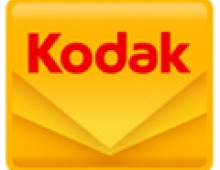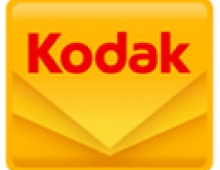
Kodak to top seslling traditional cameras in U.S.
Eastman Kodak said it will stop selling traditional film cameras in the United States, Canada and
Western Europe, another move by the photography company to cut lines with declining appeal in favor of
fast-growing digital products.
With sales of digital cameras poised to overtake film cameras for the first time this year, Kodak is
redefining itself in an effort to keep pace.
But the No. 1 maker of photographic film will continue to sell one-time use cameras in the West and expand its sales of these and other film-based cameras -- and film -- in emerging markets where demand is on the rise.
The move comes amid Kodak's controversial plan to focus on high-growth digital products, such as medical imaging systems and production printing, and reduce dependence on its declining film business. Late in 2003, Kodak said it would stop making slide projectors, but still manufactures color slide films.
Kodak will still make film for existing Advantix and other cameras, and intends to introduce new high-performance 35 millimeter and Advanced Photo System films next month.
Camera makers typically make little profit -- or lose money -- on hardware, but enjoy strong margins from sales of supplies such as film and paper, which much be replaced frequently.
Kodak said that it plans to continue making reloadable cameras that use 35-millimeter film in emerging markets, such as China, India, Eastern Europe and Latin America and that it will introduce six new cameras in those markets this year.
Other companies that helped develop APS -- Canon Inc, Fuji Photo Film Co. Ltd., Minolta Co Ltd., and Nikon Corp. -- will continue to make APS cameras.
But the No. 1 maker of photographic film will continue to sell one-time use cameras in the West and expand its sales of these and other film-based cameras -- and film -- in emerging markets where demand is on the rise.
The move comes amid Kodak's controversial plan to focus on high-growth digital products, such as medical imaging systems and production printing, and reduce dependence on its declining film business. Late in 2003, Kodak said it would stop making slide projectors, but still manufactures color slide films.
Kodak will still make film for existing Advantix and other cameras, and intends to introduce new high-performance 35 millimeter and Advanced Photo System films next month.
Camera makers typically make little profit -- or lose money -- on hardware, but enjoy strong margins from sales of supplies such as film and paper, which much be replaced frequently.
Kodak said that it plans to continue making reloadable cameras that use 35-millimeter film in emerging markets, such as China, India, Eastern Europe and Latin America and that it will introduce six new cameras in those markets this year.
Other companies that helped develop APS -- Canon Inc, Fuji Photo Film Co. Ltd., Minolta Co Ltd., and Nikon Corp. -- will continue to make APS cameras.


















